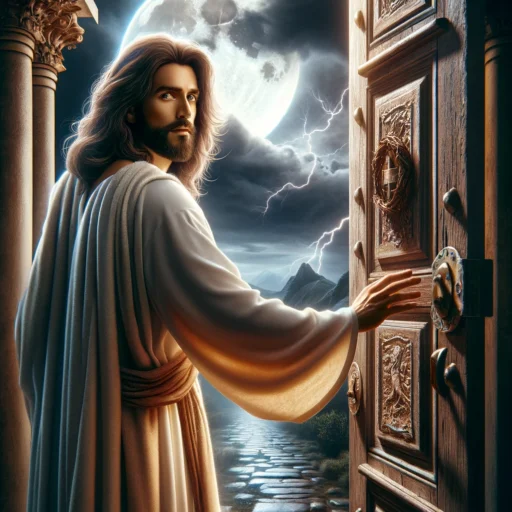Here are key instances where Jesus (Yeshua) explicitly mentions or refers to Isaiah:
- Isaiah 6:9-10 – Matthew 13:14-15; Mark 4:12; Luke 8:10; John 12:39-40
-
- Context: In explaining why he speaks in parables; Christ cites Isaiah’s prophecy about the people’s inability to understand or perceive.
- Reference: “In them is fulfilled the prophecy of Isaiah: ‘You will be ever hearing but never understanding; you will be ever seeing but never perceiving…'” (Matthew 13:14-15, also found in Mark 4:12, Luke 8:10, and John 12:39-40).
- Significance: Christ uses Isaiah’s prophecy to explain the spiritual blindness and hard-heartedness of the people of Israel during his ministry, linking it to the conditions Isaiah described.
- Isaiah 29:13 – Matthew 15:7-9; Mark 7:6-7
-
- Context: When confronted by the Pharisees and scribes about his disciples not following their traditions, Jesus (Yeshua) quotes Isaiah to rebuke them for their hypocrisy.
- Reference: “You hypocrites! Isaiah was right when he prophesied about you: ‘These people honor me with their lips, but their hearts are far from me. They worship me in vain; their teachings are merely human rules.'”
- Significance: Jesus (Yeshua) uses Isaiah’s words (from Isaiah 29:13) to point out the hollowness of external religiosity when it is disconnected from genuine devotion to God.
- Isaiah 61:1-2 – Luke 4:16-21
-
- Context: In the synagogue in Nazareth, Jesus (Yeshua) reads from the scroll of Isaiah (Isaiah 61:1-2), a prophecy about the anointed one who will bring good news to the poor and freedom to the captives.
- Reference: “The Spirit of the Lord is on me, because he has anointed me to proclaim good news to the poor…” (Luke 4:18-19).
- Significance: After reading this passage, Jesus (Yeshua) declares, “Today this scripture is fulfilled in your hearing” (Luke 4:21), affirming that he is the fulfillment of Isaiah’s prophecy about the Messiah.
- Isaiah 53:12 – Luke 22:37
-
- Context: Before his arrest, Jesus (Yeshua) refers to a prophecy in Isaiah to prepare his disciples for what is about to happen.
- Reference: “It is written: ‘And he was numbered with the transgressors’; and I tell you that this must be fulfilled in me.” (Luke 22:37).
- Significance: Jesus (Yeshua) cites Isaiah 53:12, which is part of the Suffering Servant prophecy. By quoting this verse, Jesus (Yeshua) identifies himself as the one who will suffer and be treated as a criminal.
- Isaiah 56:7 – Matthew 21:13; Mark 11:17; Luke 19:46
-
- Context: During the cleansing of the temple, Jesus (Yeshua) quotes Isaiah to condemn the merchants and money-changers.
- Reference: “It is written, ‘My house will be called a house of prayer,’ but you are making it ‘a den of robbers.'” (Matthew 21:13, Mark 11:17, Luke 19:46).
- Significance: Jesus (Yeshua) quotes from Isaiah 56:7 to assert the sanctity of the temple and to rebuke the corruption taking place within it.
- Isaiah 42:1-4 – Matthew 12:17-21
-
- Context: Matthew explains that Jesus’ (Yeshua’s) healing and ministry of compassion fulfilled the prophecy from Isaiah about the Servant of the Lord.
- Reference: “This was to fulfill what was spoken through the prophet Isaiah: ‘Here is my servant whom I have chosen, the one I love, in whom I delight…'” (Matthew 12:17-21, quoting Isaiah 42:1-4).
- Significance: This passage is quoted to show that Jesus (Yeshua) fulfills the role of the Servant prophesied by Isaiah, characterized by humility, compassion, and justice.
- Isaiah 53:1 – John 12:38
-
- Context: After describing the people’s disbelief in Jesus (Yeshua), John cites Isaiah 53:1 to explain the rejection of Jesus (Yeshua).
- Reference: “This was to fulfill the word of Isaiah the prophet: ‘Lord, who has believed our message and to whom has the arm of the Lord been revealed?'” (John 12:38).
- Significance: This quotation emphasizes the fulfillment of Isaiah’s prophecy about the Suffering Servant, who would be rejected by many.
Summary of Key References:
- Jesus directly mentions or refers to Isaiah several times, often highlighting themes of spiritual blindness, hypocrisy, and his own messianic identity and mission.
- It is noteworthy to acknowledge that neither he nor his disciples ever related Isaiah 7:14 as an identifier for the messiah. Compare the chapter on Children Mentioned in Isaiah.
- Significant references include passages from Isaiah 6, 29, 42, 53, 56, and 61, used by Jesus to illustrate his fulfillment of prophecy, as well as to rebuke the religious leaders and explain the purpose of his ministry.
